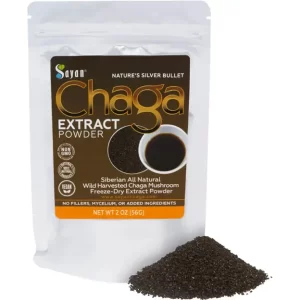Are you on dialysis and looking for answers to your problems? A registered renal dietitian with a specialization in renal nutrition provides real answers to the real questions of dialysis patients. All the questions/queries of dialysis patients on diet, nutrition, high phosphorus foods, binders, alcohol, energy levels, protein, water, missed treatment, etc. are answered by a renal dietitian.

Q: I thought I only take binders with high Phosphorus foods and drinks like milk, cheese and colas, and nuts.
Answer by renal dietitian: Phosphorus is in all foods so binders must be taken with all meals and snacks. The exception is if the snack is a fruit or a vegetable as these foods have very small amounts of Phosphorus. Binders generally will not control Phosphorus in milk, cheese, nuts, dark colas, sports/energy drinks, powdered drinks, and fruit punch due to their high Phosphorus amount quick absorption.
Q: I just take my binders first thing in the morning with my other pills so I don’t forget to take them.
Answer by renal dietitian: All binders must be taken while there is food in your stomach, preferably at the beginning or middle of your meal. This allows the binder to bind with the Phosphorus in the meal. Taking binders before or after you eat may cause unwanted effects including stomach upset.

Q: I live alone and it is just cheaper for me to eat fast food and frozen dinners.
Answer by renal dietitian: It may be okay to eat out a couple of times a week however you may need to take extra binders with those meals. Most meals for dialysis patients should be prepared fresh at home to best eliminate or reduce Phosphate additives from the diet. Working with your dietitian on meal planning as well as how to cook and freeze in batches can be helpful.
Q: What can I do to increase my energy level? I am so drained from being on dialysis.
Answer by renal dietitian: Has your doctor discussed your iron and hemoglobin levels with you recently? Are you taking your renal multivitamin daily? There can be many reasons for the lack of energy. Many dialysis and non-dialysis patients can be sluggish due to a lack of exercise. Low activity can decrease alertness as well as cause constipation which can slow you down. Your dietitian and doctor can help discover the root cause of the lack of energy.

Q: I only miss treatment one day a week and I am able to get fluid removed so what is the big deal about me missing a treatment?
Answer by renal dietitian: Hemodialysis is an attempt to clean your blood approximately 12 hours a week compared to normal functioning kidneys that work 24/7 (168 hours a week). Missing one day a week drops this number to 8 hours which interferes with your clearance rate, and ability to remove fluid, Phosphorus, Potassium as well as toxins. Missing treatments also means missing important medications administered during dialysis including but not limited to Vitamin D and agents to improve blood cell count. If you find that coming to treatment interferes with responsibilities at home, you may consider talking with your doctor about home dialysis.
Q: Can I drink alcohol?
Answer by renal dietitian: It is generally not advised to drink alcohol-containing beverages if you are a renal dialysis patient due to a lack of ability to clear it from your system until you are dialyzed. Consuming alcohol can also cause damage to your liver.

Q: How much protein do I need to eat? I feel like I eat eggs all day long.
Answer by renal dietitian: Your dietitian can tell you how much protein is recommended in your diet every day. Generally, dialysis patients are advised to follow a high-protein diet due to protein losses during treatments. The average dialysis patient requires anywhere between 75 and 100 grams of protein daily. One egg contains around 7 grams of protein.
Q: Ever since I started dialysis, I feel like I am always constipated. My doctor prescribed stool softeners but they are not working. This is why I have to drink more water than I am told to drink because it’s the only thing that helps me go to the bathroom.
Answer by renal dietitian: Constipation is common in all dialysis patients for different reasons, including restrictions on how much fluid you can drink. You may find increasing fiber and probiotics in your diet for more natural remedies to resolve constipation. However, foods that are high in fiber and some probiotics tend to be very high in Potassium and Phosphorus. Your dietitian can help you with a daily meal plan that is high in fiber while avoiding high Potassium and Phosphorus levels. There may also be some over-the-counter remedies that may work better for you than a stool softener.
Always speak to your doctor and renal dietitian before adding any OTC medicine or supplement to your daily routine.

Cheryl Robinson
Related Posts

Prostadine Reviews: Unlocking the Potential for Prostate Health



Local Delicacies: A Path to Combat the Surge in Non-Communicable Diseases


